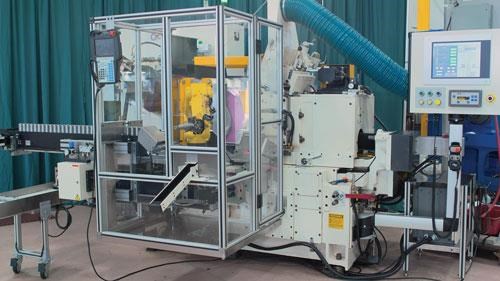Grinding—Really?
Working with Allways Precision, a systems integrator from Chicago, this shop is now able to produce motor drive shafts for one of its customers using a fully automated, robot tended cell. It’s working beautifully.

Like many shops facing changes in customer demands, Pennsylvania-based American Turned Products (ATP) is making adjustments to its production mix to meet these new challenges. That includes adding centerless grinding capability.
Working with Allways Precision, a systems integrator from Chicago, the shop is now able to produce motor drive shafts for one of its customers using a fully automated, robot tended cell. It’s working beautifully.
Check out our article in the June issue about how this came about and click on the video to see the cell in operation. We’ve been covering the technology migration for traditional screw machine shops for some time, and this is another example of it.
RELATED CONTENT
-
Handling Parts In A Robotic Cell
Here’s a review of the workholding and workhandling challenges a shop faces as it moves a part through a robotic cell, from serving up the blanks to the transfer of the final workpiece to post processing and gaging. Productivity, Inc. takes the reader through a few of their cells that they've installed using Fanuc robots and a variety of other machine tool equipment.
-
Smart Workholding Device Measures and Monitors
Sensor and IIoT technology combine to enable these chucks and mandrels to automatically monitor workholding parameters and measure part features to ensure process stability.
-
Choosing an Automatic Bar Feeder
The bar feeder is the most common form of automation for turning operations. Selecting the right one requires consideration of the applications for which it will be used.



